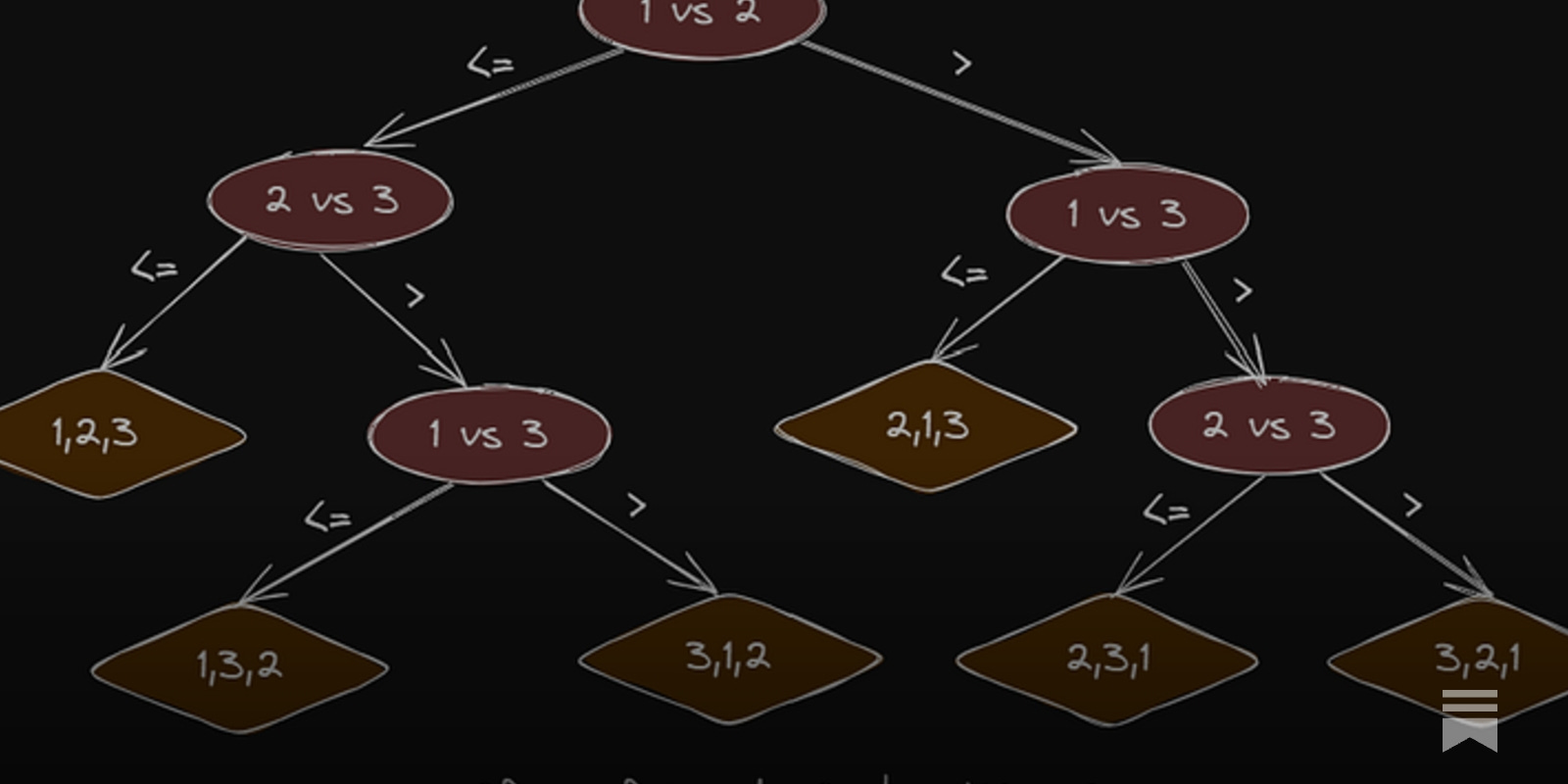
ThePolymathicEng
@EngPolymathic
Official account of the Polymathic Engineer newsletter, written by @franc0fernand0. Algorithms, distributed systems, and software engineering. Subscribe here:
The 149th issue of the Polymathic Engineer is out. This week, we talk about how the OS manages a computer's hardware: - Hw Components - Memory Hierarchy - Operating system - Process Management - Virtual Memory Management - File System Abstraction newsletter.francofernando.com/p/how-the-oper…
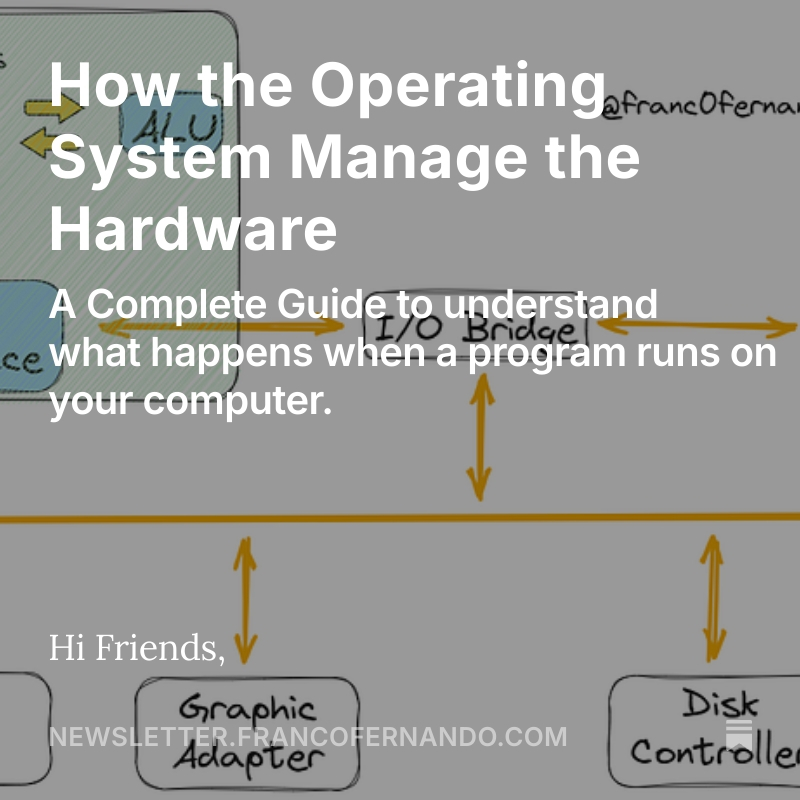
When you run a program on your laptop, a lot of things happen in the background. Even printing "Hello, World!" to the screen requires effort from both hardware and software. CPUs, memory, storage devices, and the operating system all work together to make it possible. The raw…
The 149th issue of the Polymathic Engineer is out. This week, we talk about how the OS manages a computer's hardware: - Hw Components - Memory Hierarchy - Operating system - Process Management - Virtual Memory Management - File System Abstraction newsletter.francofernando.com/p/how-the-oper…

As a developer, you have two main ways of serializing data when building APIs. Text formats like JSON and XML have become popular because they are easy for people to understand. But binary encodings have a more compact representation of the data, requiring less storage and…

Scaling a stateless application is straightforward. You add more servers, put them behind a load balancer, and handle more traffic. But there is a catch. As your application handles more load, the number of requests to the database also rise. Eventually, a single database…
The 148th issue of the Polymathic Engineer is out. This week we talk about ho to scale the data storage layer in system design: - replication - partitioning - No SQL databases Read it here: newsletter.francofernando.com/p/scaling-the-…
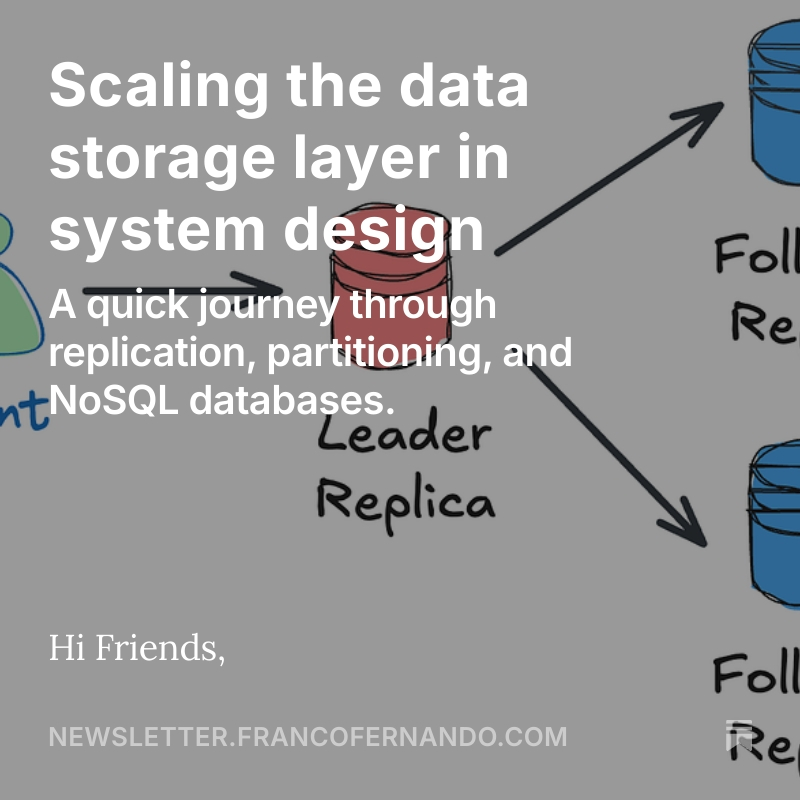
The 148th issue of the Polymathic Engineer is out. This week we talk about ho to scale the data storage layer in system design: - replication - partitioning - No SQL databases Read it here: newsletter.francofernando.com/p/scaling-the-…

You can read this article to learn more about how counting sort, radix sort, and bucket sort works: newsletter.francofernando.com/p/linear-time-…
The most common sorting algorithms work by comparing elements. Some of them work very well, like Quicksort and Mergesort. But other algorithms like counting or radix sort are even faster in some situations. Here is why: Comparison-based algorithms make no assumptions about…
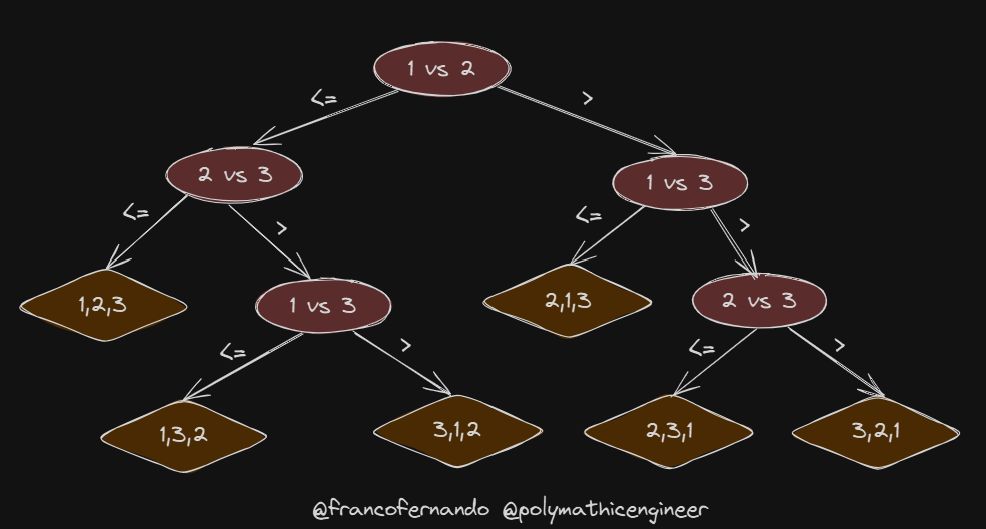
There is a question that makes most software developers feel bad: "How long will this take?" Despite that, this question gets asked of you many times. The reality is that business need to plan, and estimating is necessary. There is no way to dodge it. Here is what separates…
The 147th issue of the Polymathic Engineer is out. This week, we talk about how to estimate your work as a software engineer: - Past Experience - Refactoring Projects - Building from scratch - Using new technology - Complex work with many unknowns newsletter.francofernando.com/p/how-to-estim…

The 147th issue of the Polymathic Engineer is out. This week, we talk about how to estimate your work as a software engineer: - Past Experience - Refactoring Projects - Building from scratch - Using new technology - Complex work with many unknowns newsletter.francofernando.com/p/how-to-estim…

If you are a senior software engineer who care about their craft and want to get better, read these 10 articles: ↓
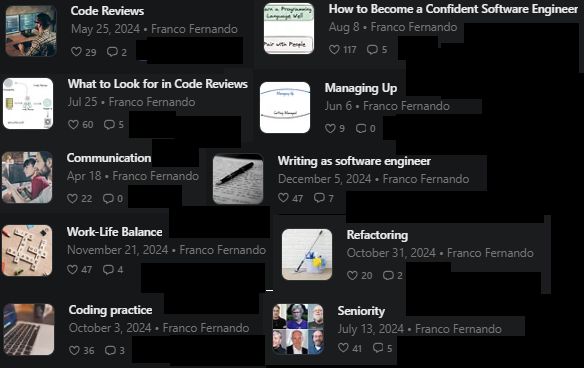
In distributed systems, there are two common ways to use hashing. The choice between them comes down to trade-offs. Consistent hashing gives priority to lookup speed and scalability. Rendezvous hashing has to balance the load as its main goal. Its basic idea is: • calculate…
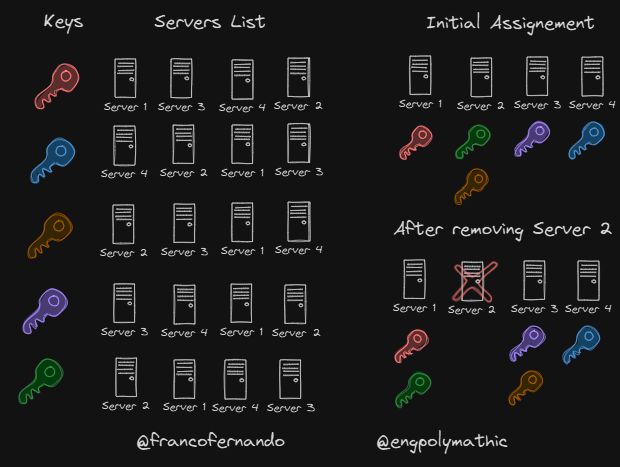
The 146th issue of the Polymathic Engineer is out. This week, we talk about some important practical applications of the heap data structure: - Priority Queues - Finding the K Largest Elements - Graph Algorithms - Huffman Coding Read it here: newsletter.francofernando.com/p/heap-use-cas…

There is a reason why System Design is hard for most software engineers. They don't understand how distributed systems work. If you want to learn the basics of distributed systems, read these 13 curated articles: ↓

Caching in a production environment is not a piece of cake. Things go wrong suddenly due to how traffic works, system failures, and scale. But most of these issues are well known, and there are tried-and-true solutions. Here are some examples: - A cache avalanche occurs when…
The 145th issue of the Polymathic Engineer is out. This week, we talk about the challenges of running caching in a production environment: - Cache Avalanche and Thundering Herd - Cache Penetration - Traffic Pattern Issues - Large Key - Cold Start francofernando.substack.com/p/caching-in-d…
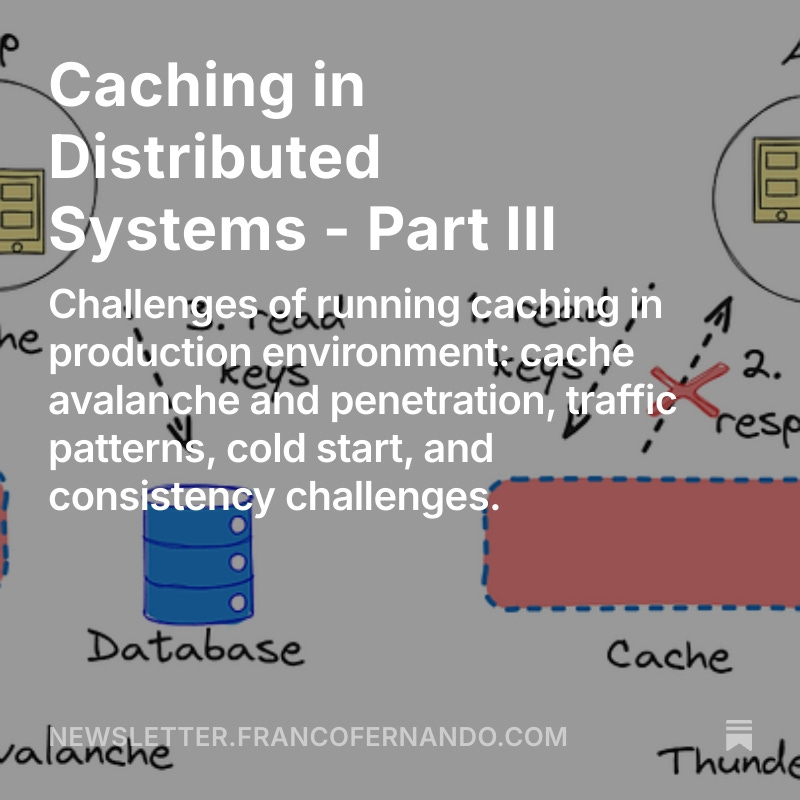
The 145th issue of the Polymathic Engineer is out. This week, we talk about the challenges of running caching in a production environment: - Cache Avalanche and Thundering Herd - Cache Penetration - Traffic Pattern Issues - Large Key - Cold Start francofernando.substack.com/p/caching-in-d…

The 144th issue of the Polymathic Engineer is out. This week we talk about advanced caching concepts: - Read Strategies - Write Strategies - Combining strategies - Cache Management - Replacement Policies - Invalidation and TTL Read it here: francofernando.substack.com/p/caching-in-d…

One thing developers find hard to figure out is when caching works best. Here's how to know if your caching strategy is the correct one. The most crucial metric for the performance of a cache is its hit ratio, as it tells how many times cached items are reused. To maximize the…
The 143rd issue of the Polymathic Engineer newsletter is out. This week, we start talking about caching: - Why Caching Matter - Use Cases - Understanding Performance - Cache vs. Storage Systems - Deployment Strategies - Distributed Architecture newsletter.francofernando.com/p/caching-in-d…

United States Trends
- 1. #StrangerThings5 54.1K posts
- 2. Afghan 144K posts
- 3. Thanksgiving 552K posts
- 4. National Guard 475K posts
- 5. #AEWDynamite 14.1K posts
- 6. #Survivor49 1,970 posts
- 7. Rahmanullah Lakanwal 58.6K posts
- 8. holly 21.8K posts
- 9. Cease 26.7K posts
- 10. dustin 82.5K posts
- 11. Celtics 13.6K posts
- 12. Blood 245K posts
- 13. Rizo 1,958 posts
- 14. Operation Allies Welcome 18.9K posts
- 15. #TheChallenge41 N/A
- 16. Savannah 4,995 posts
- 17. Blue Jays 11.4K posts
- 18. Cade 33.9K posts
- 19. Derrick White 2,149 posts
- 20. Okada 7,496 posts
Something went wrong.
Something went wrong.


